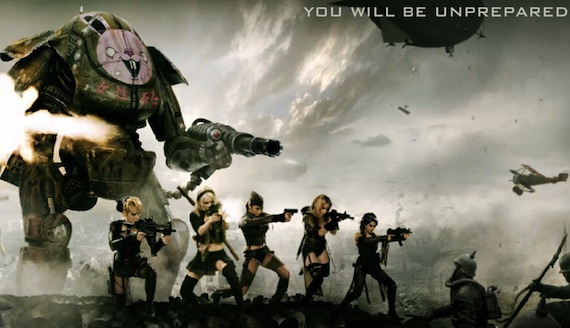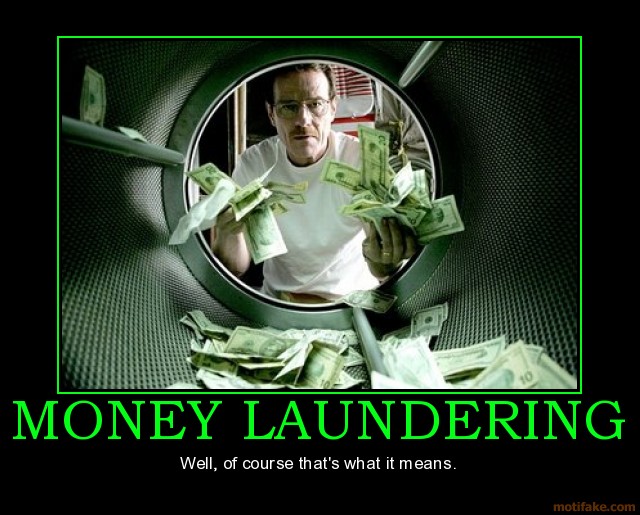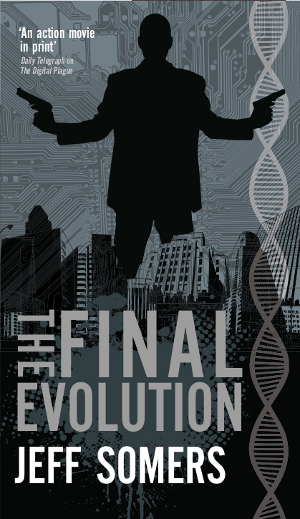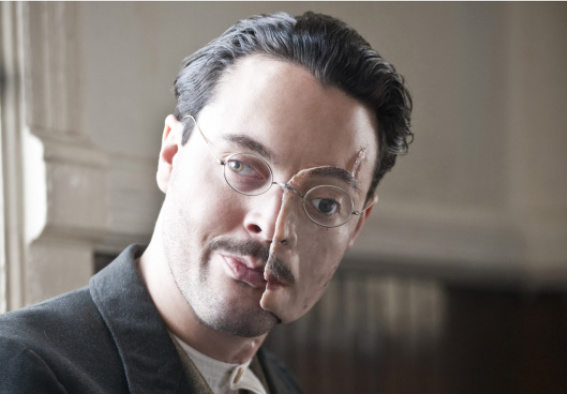Sucker Punch
 All right, let’s discuss Sucker Punch. First, some stipulations:
All right, let’s discuss Sucker Punch. First, some stipulations:
1. Sucker Punch is not a good movie.
2. However, something this banal and shallow almost certainly has to be this banal and shallow on purpose or life has no meaning and I might as well shoot myself in the head right now.
In fact, the banality, shallowness, and ridiculousness of this film is very likely the whole fucking point. I’m going to assume you’ve watched it, and thus know the story, as I will not offer a summary and will offer generous spoilers.
Here’s the thing: Zack Snyder thinks he’s smarter than he actually is, and to give credit where it is due, he tried to do something remarkable here. I think. The whole thing is so incoherent this all might be some sort of Dying Dream where my brain, murdered by awfulness, attempts to create a new reality that makes more sense. I think Zack Snyder made most of his movie ridiculous and meaningless on fucking purpose.
Consider: The title of the movie, when considered after having watched it, pretty obviously signifies a trick.
Consider: The set-up to the plot is perfunctory, barely sketched. I get the feeling Snyder would have preferred to just cold-open in the asylum and not bothered explaining how Baby Doll got there. In fact, that might have been the wiser choice, for all the good the wordless set-up actually does.
And then, just as Don Draper is about to shove a pick up Baby Doll’s nose and lobotomize her, bam! We are dropped into two levels of bullshit in which nothing matters. The use of the word levels is intentional, because while the first part of this portion of the movie is just a bad, boring Caged Heat riff, the second part is best described as Extended Video Game CutScenes. In the first level of bullshit, Baby Doll filters actual events in the asylum through her imagination as she sketches a plan to break out. In the second level of bullshit, she and her fellow inmates murder hundreds of mooks in order to prosecute their plan. But don’t worry; it is specifically stated that the mooks are not human, so we shouldn’t feel at all conflicted about their wholesale murder.
That’s important.
So here, then, is the trick, the sucker punch. We’re told explicitly not to worry about the slaughter, because it doesn’t matter. And the artificiality of the bordello level appears to imply that none of the main characters will be killed. It’s falseness, stylized design, and clear implication that it’s all a dream coupled with the ludicrous nature of their bloodless adventures makes your mind wander, secure that none of the pretty girls will get killed. Maybe they’ll be in danger, as Rockett is once or twice early on. Maybe a mission will go wrong somehow. But nothing’s going to happen in these two layers, because these two layers are bullshit, and Snyder works hard to make sure you’re aware they are bullshit. And we, the audience, are familiar with the tropes that apply to these kinds of bullshit and so we think we know what’s going to happen.
And then, boom! The girls die.
That, of course, is the sucker punch of the movie. After working hard to convince you that none of the main characters is going to die, he kills off three main characters in ten minutes. Their deaths are not really heroic or beautiful. They don’t really die for anything. After spending an hour or more convincing you that the story is just cutscene nonsense, he shoots them in the head, smears blood on his fingers, and paints a question mark on your forehead with it.
I’m not sure I would have liked a successful Sucker Punch, to be honest. This kind of haughty See? You’re the Monster! kind of storytelling is dull. Yes, yes, I am desensitized because of media violence. Fuck you, Zack Snyder. However, at least Snyder tried something. It didn’t work, and maybe it sucked, but he tried. I give him that.
Let’s also consider, as a parting gift, the clear implication that Blue the Orderly has been forging lobotomy documents for years in order to rape lobotomized girls. That, my friends, is what scientists call Entertainment.





